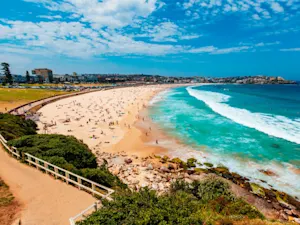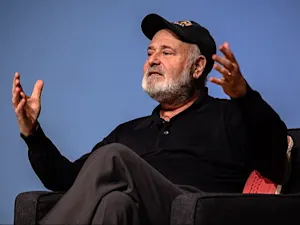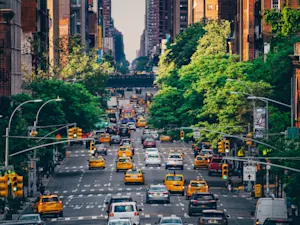
8 US Presidents Who Had Surprising Day Jobs Before Politics
Most American presidents had long careers in the military or in public office before taking the Oval Office, but some had some truly unexpected careers before diving into politics! Let's take a look at eight U.S. presidents and the day jobs that shaped them long before they held the highest office of the land.
1. Abraham Lincoln (1861-1865): Rail-Splitter and Flatboatman
Long before the Lincoln Memorial and the Emancipation Proclamation, young Abe worked as a rail-splitter and a flatboatman. Picture him, out there splitting logs and ferrying goods down the Mississippi River. These gritty jobs made Lincoln relatable to everyday Americans. His campaign team even ran with the "Rail-Splitter" nickname, showing he wasn't just a politician but a man who knew hard work.
2. Andrew Johnson (1865-1869): Tailor
Andrew Johnson didn't just wear suits — he made them. At age 10, he started as a tailor's apprentice and eventually opened his own shop in Tennessee. Even after becoming president, he loved to brag about his ability to make a suit from scratch, a handy skill that helped him connect with the working class.
3. Grover Cleveland (1885-1889, 1893-1897): Executioner
Grover Cleveland didn't shy away from tough jobs — he embraced them. As sheriff of Erie County, New York, he personally handled two executions by hanging. Most sheriffs would've passed the task off, but not Cleveland. His no-nonsense approach to responsibility and willingness to face hard realities carried into his presidency, showing that when duty called, Cleveland answered.
4. Warren G. Harding (1921-1923): Newspaper Publisher
Before politics, Warren Harding turned a struggling local paper into a success story. As the proud owner of the Marion Star, he sharpened his writing and communication skills, churning out editorials that won over readers. Those same skills helped him deliver campaign speeches and navigate the tricky world of public opinion when he later ran for office.
5. Herbert Hoover (1929-1933): Mining Engineer
Herbert Hoover didn't just dig for gold — he struck it rich. After graduating from Stanford with a geology degree, Hoover worked as a mining engineer in Australia and China. His expertise earned him a fortune and the nickname "The Great Engineer." The practical skills Hoover developed managing resources and operations abroad laid the groundwork for his approach to handling economic crises, like the Great Depression.
6. Harry S. Truman (1945-1953): Haberdasher
Harry Truman sold hats long before he handed out orders as president. After World War I, he opened a haberdashery in Kansas City, selling men's suits and accessories. The business didn't last long, but the experience of running a store — and watching it fail — gave Truman a firsthand understanding of financial hardship. That knowledge came in handy when he later had to navigate the nation through economic ups and downs.
7. Jimmy Carter (1977-1981): Peanut Farmer
Before Jimmy Carter cultivated peace deals, he cultivated peanuts. Carter grew up on his family's peanut farm in Georgia, and after his father passed away, Carter took over and turned it into a booming business. His down-to-earth farming background became a key part of his political brand during his 1976 campaign. And in true Carter fashion, when he became president, he put the farm into a blind trust to avoid conflicts of interest.
8. Ronald Reagan (1981-1989): Actor
Before his Hollywood smile won him votes, Ronald Reagan was a real Hollywood star. He appeared in more than 50 films, playing roles such as the all-American hero in "Knute Rockne, All American." But it wasn't just his acting chops that paved his way to the White House — his time as president of the Screen Actors Guild taught him leadership skills and sharpened his anti-communist views, a stance that would shape much of his political career.
From rail-splitting to running a haberdashery, these unique careers show that the path to the presidency doesn't have to start in politics. Each job gave these leaders a fresh perspective and shaped the way they approached their time in office.
References: Abraham Lincoln | From Tailor to President: The Story of Andrew Johnson | Grover Cleveland: Life Before the Presidency | Warren G. Harding | Herbert Hoover: Life Before the Presidency | Suited for a President | Ronald Reagan's Filmography | The Mighty Peanut | Guess which American president personally hanged two Irishmen from the scaffold? | Warren G. Harding: A newspaperman who became the president
























